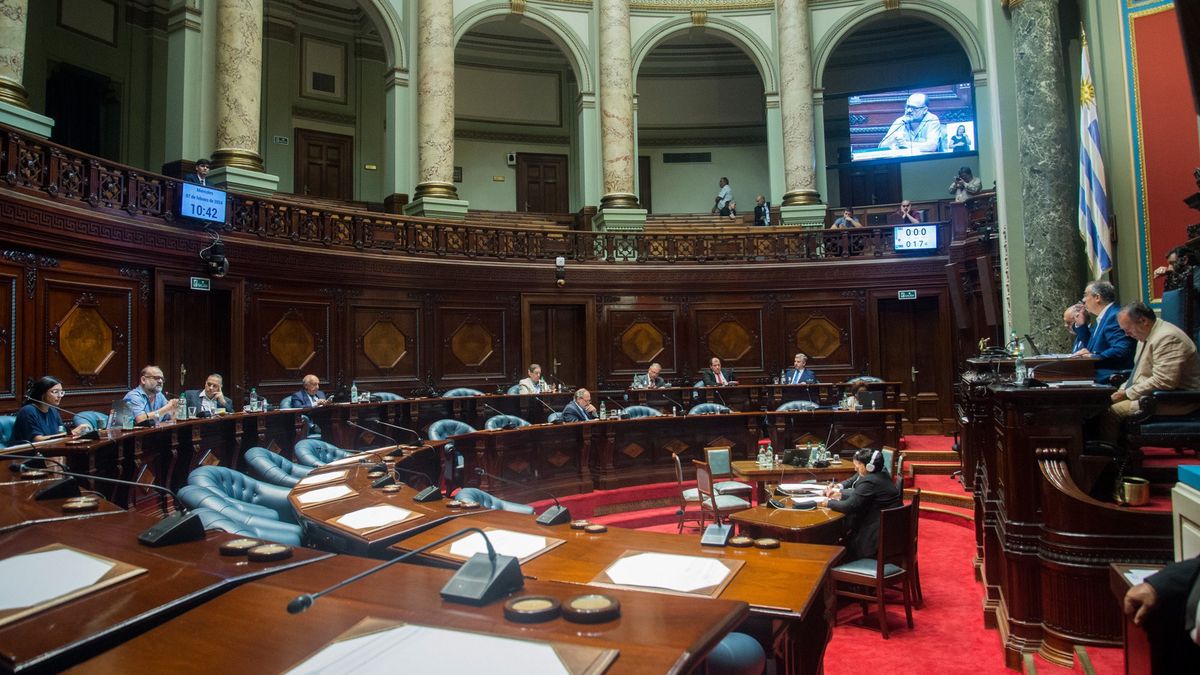The renewed project of entry by competition to the mayoralties advances at the legislative level: deputies from different parties signed the text promoted by the Frente Amplio Gustavo Olmos after the corruption scandal in Artigas and because of the “important social consensus” that there is a “need to end discretion in the appointment of public officials.”
Although four months ago the initiative did not have the support of almost any sector, not only at the parliamentary level but also later, with the proposal to put the modifications to a plebiscite together with the national elections; the current scenario brought together Olmos, Conrado Rodriguez (Colorado Party), Ivan Posada (Independent Party) and Juan Martin Rodriguez (National Party) around a project that establishes a new modality of income and promotions of public officials in departmental governments.
The document states in its article 2 that “the selection of candidates will be carried out in all cases by competitive examination and merits or merits and background”; and that “only in those cases in which the necessary requirements for the positions merit it, the carrying out of a public draw”, after due justification of why such an alternative was resorted to.
In this sense, article 3 enables the option of direct contracts in exceptional situations, specific to the circumstances of each department. In this regard, Olmos had explained that this margin was left for emergencies and needs to be covered in a very limited period of time, insufficient for the holding of a competition.
Likewise, the promotions In the municipalities, “they must be carried out through competitions held in accordance with the principles of publicity, transparency and equal opportunities.”
A bill that responds to recent events
The truth is that at the beginning of the year, when a project with similar characteristics had been presented by the deceased senator of the Colorado Party, Adrian Pena, This one did not have a good reception in the Parliament, and did not advance the necessary stages to see the light as a new law.
After the tragic traffic accident in which Peña lost his life, his sector, Citizens, sought to promote a plebiscite as a tribute to the former Minister of the Environment. But, once again, the lack of support from the other parties – with the explicit opposition to the initiative by the Blancos – truncated the future of the initiative.
The recent corruption scandal in the Artigas Municipalitywhich ended with a judicial conviction and the resignation of the departmental head of the National Party, Pablo Caram, He once again put on the table the “need to end discretion in the appointment of public officials”, as indicated in the current project on income and promotions in departmental governments. The entire political system was called upon to provide an answer and a solution to this type of issue for the citizens, but mainly the white sector – although Deputy Rodríguez signed the text in a personal capacity, and not as a representative of his party.
In this regard, the explanatory statement of the initiative presented by Olmos but with the support of all parties, maintains that its primary purpose is “to converge the requirements currently in force for the entry of public officials to the Departmental Governments with those applicable to the majority of state public administrations, in which the competition is the rule and other entry routes are the exception.”
The text also cites the delegation of the National Civil Service Officeregarding the fact that “entry into public service must be by competition, without a doubt”: “There must be a public, open competitionwhich provides all the guarantees required for entering the public service (…) which demonstrates the significance, the importance of entering the public service, but where everyone has the possibility of participating and where there is equality for entry into these positions. In addition, it is provided for in the Constitution, precisely, that all citizens can access public office.”
“The opacity in the staff selection mechanisms It violates the principle of equality in access to public office, conspires against the efficiency and good quality of public management, and – what is even more serious – opens the door to clientelistic practices, “undermining citizens’ trust in institutions. It is therefore necessary to ensure the equal right of citizens to access public office, taking into account only the needs of the service and the suitability of the person who will occupy the office in question, particularly at a time when the prestige of politics and trust in democracy are being questioned at a local and international level,” concludes the text that will be presented at the Parliament for its treatment in committee and, later, in the plenary, considering the broad political support that has.
Source: Ambito




